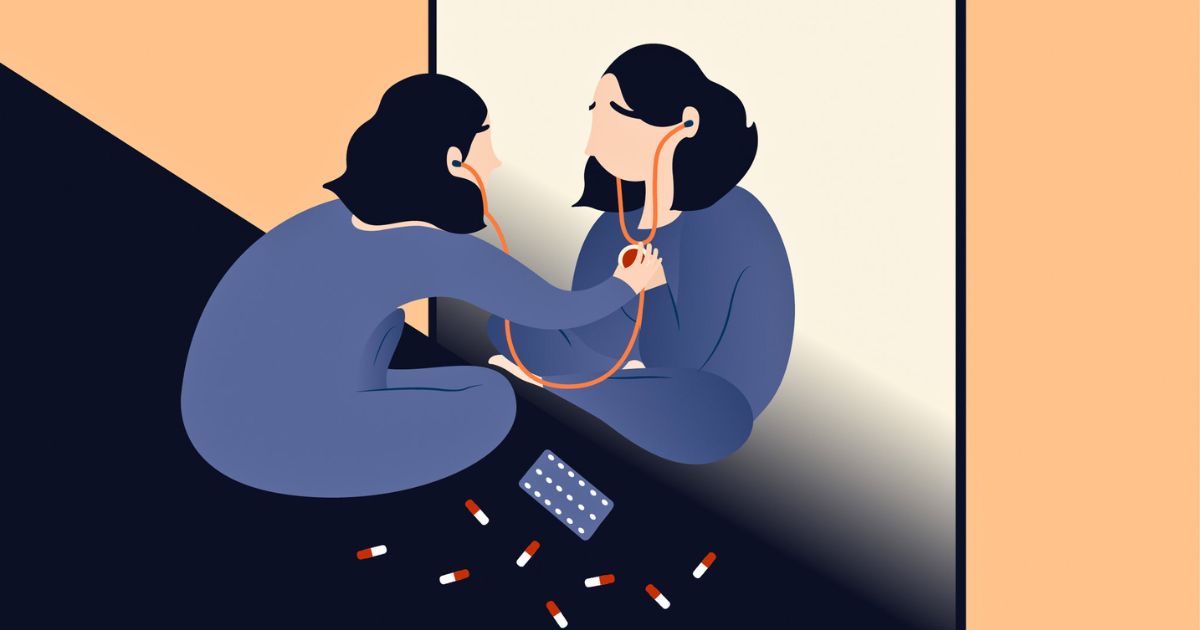New comprehensive research carried out by Sweden has now given a paradox about the fate of people who have been diagnosed with fear to get serious diseases and this shows that there is a very worrying link between hypochondriasis and premature death.
The symptoms of hypochondriasis, now known as illness anxiety disorder, extend beyond ordinary health concerns.
People struggling with this ailment fail to overcome their fears even after being diagnosed clean during physical examinations and diagnostic tests.
This often forces some people who are affected to abandon their doctors or even medical care altogether.
Hypochondriasis spans from minor hypochondriacal traits to an unending worry and fear of developing a severe condition, according to Dr. Jonathan E. Alpert from Montefiore Medical Center in New York.
Alpert emphasized that it is important to understand this suffering and advocate for real treatment.
According to David Mataix-Cols from the Karolinska Institute in Sweden that led the study, the research published in JAMA Psychiatry fills a huge gap in previous literature.
Mataix-Cols said thank you for having a unique code for hypochondriasis within the Sweden disease classification system for facilitating this classification.
As a result, extensive analysis was possible over 24 years (1997-2020), involving thousands of participants.
In contrast to some earlier studies which suggested lower suicide risks among those with health anxiety, these findings are different entirely.
The study showed four times higher rate of suicidal deaths among people who had been diagnosed with this condition.
The investigators critically assessed 4,100 subjects suffering from hypochondriasis and matched them with 41,000 individuals of similar age residing in the same county.
Researchers found out compelling differences in terms of mortality rates using an index called “person years.”
Hence, alarming disparities were revealed by the researchers considering certain parameters including the number of persons involved and the entire period of tracking.
Compared to their counterparts, patients diagnosed with hypochondriasis had higher overall mortality rates 8.5 versus 5.5 per 1000 person years; besides, such individuals died at an earlier age (an average of 70 years old as opposed to 75 years old for others).
Also, it was notable that they were more likely to die from circulatory or respiratory diseases compared to people with no such health condition; although, the statistics on cancer-related mortality did not vary significantly between both groups.
The authors of this research attributed some of these elevated mortality rates among individuals with hypochondriasis to chronic stress and its consequent effects on the body.
For illness anxiety disorder treatment, cognitive behavioral therapy is combined with relaxation techniques, education and other times antidepressant medication may be used.
However, Dr. Alpert noted that when referring extremely anxious patients for mental health care providers, it is necessary to practice caution without hurting the feelings of such patients a lot.
Patients might be offended or feel misunderstood if they see this referral as an accusation that they are faking symptoms.
Thus, Alpert said that it is important to respect and take care to your patients by recognizing their problem’s true existence and diagnosability while emphasizing availability of effective therapies.
The significance of treating illness anxiety disorder maturely is therefore stressed in this pioneering study.
The effects of this condition are not just distressing to the individuals suffering from the same but also the study highlights that it can lead to death at an early age.
It is a challenging task to acquaint oneself with these intricacies through a balanced understanding, empathy and access to appropriate interventions that will help mitigate this burden on health anxiety exposing individuals associated risks.
With more profound investigations into mental health as it relates to physical well-being, studies like these make us rethink our attitudes and approaches towards such disorders as illness anxiety disorder.
This is with the aim of bettering the lives and adding value to them for those who are affected.




























